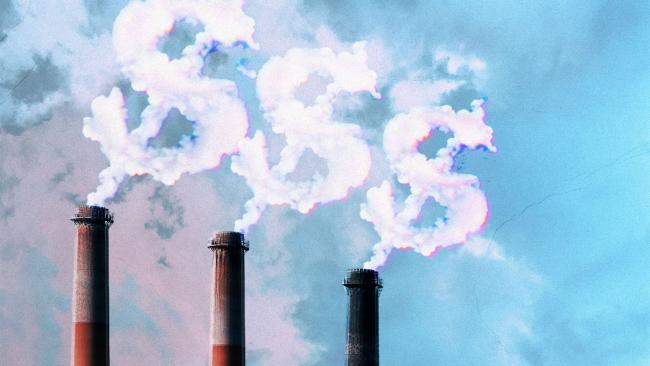Articles Menu

Nov. 20, 2023
Sigh. So, once again, the carbon tax — only ever a meagre climate measure — is sucking up all the political and media oxygen at the expense of other more systemic and bold changes. It now appears we are destined to spend the next federal election, quite likely next year’s British Columbia election and possibly other forthcoming provincial elections re-prosecuting past climate fights.
This is no way to win the battle of our lives. Tackling the climate crisis requires urgent forward momentum, not relitigating the carbon tax debate. Moreover, there are a multitude of alternatives to this debacle and many other options to address affordability (more on that below).
The Trudeau government’s recent decision to exempt home heating oil from the carbon tax will be remembered as one of the great boneheaded political moves of recent years. Not only does the carveout throw the federal government’s keystone climate policy of the past 10 years into turmoil, but the announcement also blindsided the federal NDP, and in doing so, violated the Liberal-NDP supply-and-confidence agreement, one of the first provisions of which is a “no surprises” commitment.
Now the floodgates are open. The very logic of taxing pollution as a means of encouraging fuel-swapping is cast into question. And tragically, the government has reinforced the Conservatives’ effort to make the carbon tax a core ballot question, yet again.
For the record, I support carbon pricing, and at this late stage, we mustn’t jettison it. It is a useful policy tool in keeping with a basic “polluter pay” principle that seeks to capture what economists call “externalities.” To put it bluntly, neither households nor industry should be able to use our shared atmosphere as a free toilet. It makes sense to raise revenues from carbon pollution and use that money to tackle the climate emergency. And it can be designed in a manner that, with well-targeted carbon tax credits, ensures fairness and equity.
That said, the carbon tax was never going to be our primary path to climate safety. It is an incremental market-based measure that merely incentivizes households and businesses to modestly shift their consumption and investment choices.
Yet, the policy landscape has been overly fixated on it for years. Politicians, academic economists and even many environmental organizations have placed great stock in carbon pricing, expending huge political capital in its defence. Even, in the case of the Trudeau government, trading oilsands and pipeline expansion for agreement on a carbon tax.
British Columbia is lauded for first introducing a carbon tax in 2008, and I support the tax. But a distressing truth is that B.C.’s greenhouse gas (GHG) emissions in 2021 — the last year for which we have data — stood at about 59 megatonnes, a mere two megatonnes less than in 2007, the year before the tax was introduced. True, emissions would have been higher still without it, especially given population and economic growth. But that’s 14 years with precious little progress to show. Ultimately, the planet does not care if our GHG emissions are relatively lower than might have occurred under status quo conditions. It’s time to dramatically bend the curve.
Simply put, the carbon tax will not get us where we need to go at the speed and scale the climate emergency demands — and I believe much of the public suspects as much.
While the debate over carbon tax carveouts sucks up the political oxygen, other bold actions that could reduce planet-heating pollution get short shrift. @SethDKlein writes for @NatObserver #carbontax #cdnpoli - Twitter
Notwithstanding the above, the impetus for this political blunder was a real need to address the affordability challenges of lower-income people.
Yes, low- and modest-income households are hurting and need help. And those who heat their homes with oil have been particularly hard hit by rising prices (in contrast, those who heat with “natural” gas, in most cases, receive more from the carbon tax rebate than they pay in the tax itself).
But the kicker is that much better options exist to extend support to those who need it. For example:
And how might we pay for these measures? For starters, with a windfall profits tax on oil and gas companies. As the Parliamentary Budget Officer has calculated (prompted by a motion from Green MP Mike Morrice), if the federal government extended the excess profits tax it has already instituted for financial institutions to the record profits of the oil and gas sector, the tax could generate $4.2 billion over five years. More if the rate was set higher.
Such a move could be a win-win-win. Politically, a windfall profits tax is hugely popular (two years ago, Abacus Data found 87 per cent of Canadians support an excess corporate profits tax). With respect to the climate, the tax could help finance the energy transition. And economically, it would help to ease inflation; according to the Canadian Centre for Policy Alternatives, over 40 per cent of the recent rise in prices can be attributed to corporate profits, and the industry that leads the pack in hoovering up these excess profits is the very industry fuelling climate chaos — oil and gas companies. By taxing those windfall profits, we simultaneously discourage inflationary price increases while putting the money to use helping households switch to electric heating and improving public transit, liberating them from rising gas prices in their monthly utility and transportation bills.
I’ve said it before — we aren’t going to incentivize our way to victory in this task of our lives. To get this job done in the most equitable manner, we need to spend what it takes to win. As people across Canada face genuine affordability challenges, politicians should be advancing climate solutions that make life more affordable today, and more livable into the future.
[Top: Illustration by Ata Ojani for Canada's National Observer]